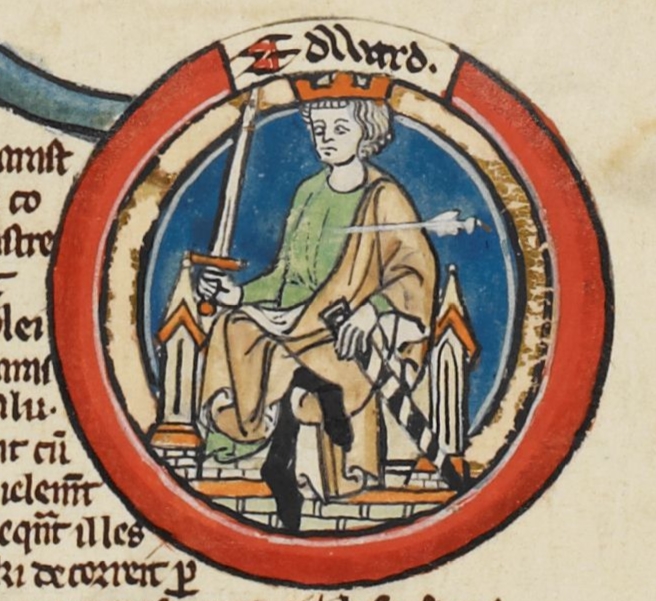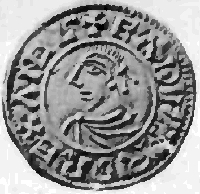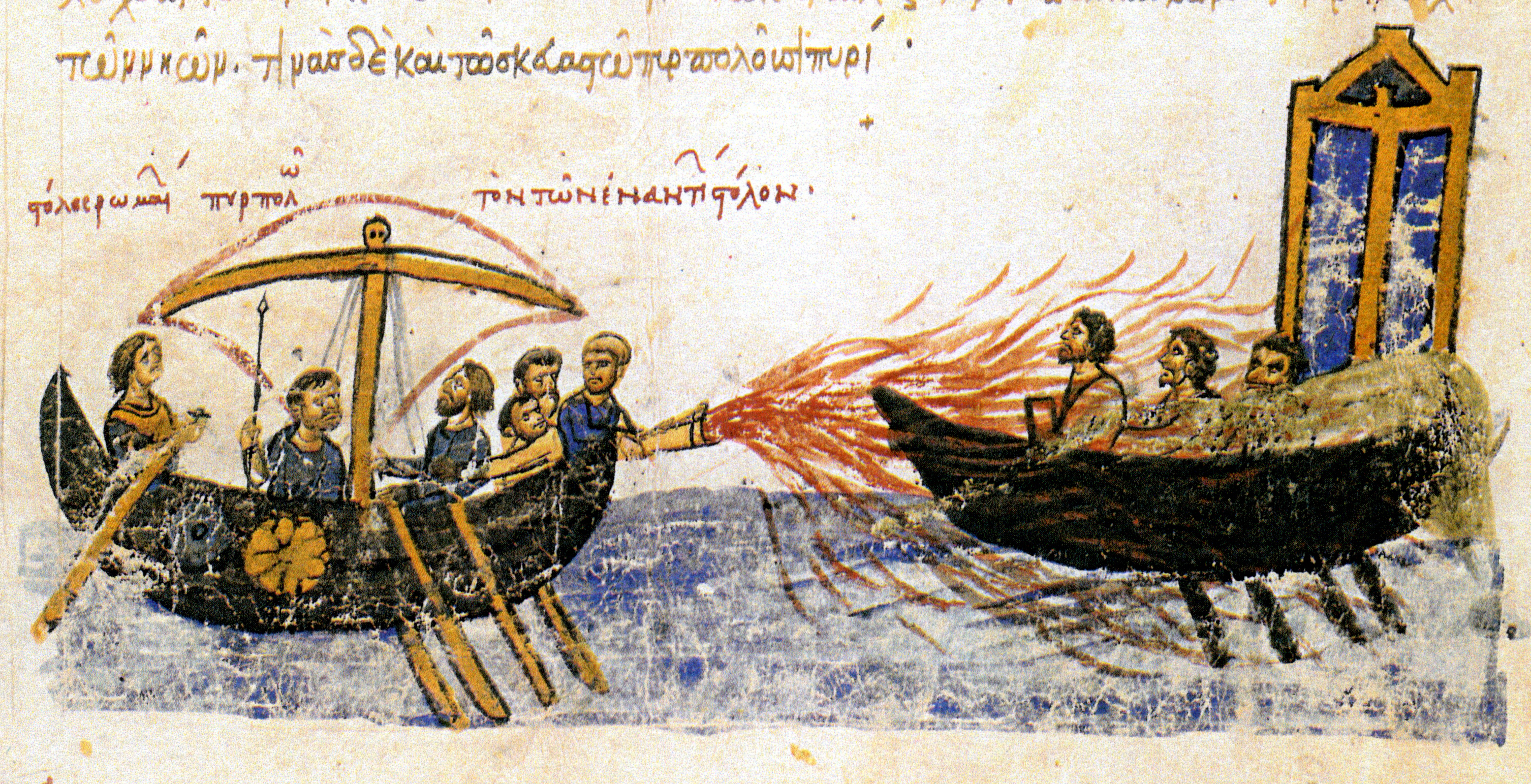|
975
Year 975 ( CMLXXV) was a common year starting on Friday of the Julian calendar. Events By place Byzantine Empire * Arab–Byzantine War: Emperor John I raids Mesopotamia and invades Syria, using the Byzantine base at Antioch to press southwards to Tripoli. He conquers the cities of Baalbek, Damascus, Sidon, Tiberias and Caesarea, but fails to take Jerusalem. Europe * October 15 – Oberto I (Obizzo), an Italian count palatine, dies. The Marca Obertenga (Eastern Liguria) is divided among the Obertenghi family. * Emperor Otto II (the Red) leads a punitive expedition against Boleslaus II, duke of Bohemia (approximate date). England * July 8 – King Edgar I (the Peaceful) dies at Winchester after a 16-year reign. He is succeeded by his 12-year-old son Edward II (the Martyr) as ruler of England. Africa * December 21 – Caliph Al-Mu'izz dies in Egypt after a 22-year reign in which he has extended his realm from Sicily to the Atlantic. He is succ ... [...More Info...] [...Related Items...] OR: [Wikipedia] [Google] [Baidu] |
Edgar The Peaceful
Edgar (or Eadgar; 8 July 975), known sometimes as Edgar the Peacemaker or the Peaceable, was King of the English from 959 until his death in 975. He became king of all England on his brother Eadwig's death. He was the younger son of King Edmund I and his first wife, Ælfgifu of Shaftesbury, Ælfgifu. A detailed account of Edgar's reign is not possible, because only a few events were recorded by chroniclers and monastic writers, who were more interested in recording the activities of the leaders of the church. Edgar mainly followed the political policies of his predecessors, but there were major changes in the religious sphere. The English Benedictine Reform, which he strongly supported, became a dominant religious and social force. It is seen by historians as a major achievement, and it was accompanied by a literary and artistic flowering, mainly associated with Æthelwold of Winchester, Æthelwold, Bishop of Winchester. Monasteries aggressively acquired estates from lay land ... [...More Info...] [...Related Items...] OR: [Wikipedia] [Google] [Baidu] |
Edward The Martyr
Edward the Martyr ( – 18 March 978) was King of the English from 8 July 975 until he was killed in 978. He was the eldest son of King Edgar (r. 959–975). On Edgar's death, the succession to the throne was contested between Edward's supporters and those of his younger half-brother, the future King Æthelred the Unready. As they were both children, it is unlikely that they played an active role in the dispute, which was probably between rival family alliances. Edward's principal supporters were Dunstan, Archbishop of Canterbury, and Æthelwine, Ealdorman of East Anglia, while Æthelred was backed by his mother, Queen Ælfthryth and her friend Æthelwold, Bishop of Winchester. The dispute was quickly settled. Edward was chosen as king and Æthelred received the lands traditionally allocated to the king's eldest son in compensation. Edgar had been a strong and overbearing king and a supporter of the monastic reform movement. He had forced the lay nobility and secular ... [...More Info...] [...Related Items...] OR: [Wikipedia] [Google] [Baidu] |
Baalbek
Baalbek (; ; ) is a city located east of the Litani River in Lebanon's Beqaa Valley, about northeast of Beirut. It is the capital of Baalbek-Hermel Governorate. In 1998, the city had a population of 82,608. Most of the population consists of Shi'a Islam in Lebanon, Shia Muslims, followed by Sunni Islam in Lebanon, Sunni Muslims and Christianity in Lebanon, Christians; in 2017, there was also a large presence of Refugees of the Syrian civil war, Syrian refugees. Baalbek has a history that dates back at least 11,000 years, encompassing significant periods such as Prehistory of Lebanon, Prehistoric, Canaanite, Hellenistic period, Hellenistic, and Phoenicia under Roman rule, Roman eras. After Alexander the Great conquered the city in 334 BCE, he renamed it Heliopolis (, Greek language, Greek for "Sun City"). The city flourished under Roman rule. However, it underwent transformations during the Historiography of the Christianization of the Roman Empire, Christianization period and t ... [...More Info...] [...Related Items...] OR: [Wikipedia] [Google] [Baidu] |
Caesarea Maritima
Caesarea () also Caesarea Maritima, Caesarea Palaestinae or Caesarea Stratonis, was an ancient and medieval port city on the coast of the eastern Mediterranean, and later a small fishing village. It was the capital of Judaea (Roman province), Roman Judaea, Syria Palaestina and Palaestina Prima, successively, for a period of 650 years and a major intellectual hub of the Mediterranean. Today, the site is part of the Caesarea National Park, on the western edge of the Sharon plain in Israel. The site was first settled in the 4th century BCE as a Phoenicia, Phoenician colony and trading village known as Abdashtart I, Straton's Tower after the ruler of Sidon. It was enlarged in the 1st century BCE under Hasmonean dynasty, Hasmonean rule, becoming a Jewish village; and in 63 BCE, when the Roman Republic annexed the region, it was declared an autonomous city. It was then significantly enlarged in the Roman period by the Judaea (Roman province), Judaean client King Herod the Great, who ... [...More Info...] [...Related Items...] OR: [Wikipedia] [Google] [Baidu] |
July 8
Events Pre-1600 * 1099 – Some 15,000 starving Christian soldiers begin the siege of Jerusalem by marching in a religious procession around the city as its Muslim defenders watch. * 1167 – The Byzantines defeat the Hungarian army decisively at Sirmium, forcing the Hungarians to sue for peace. * 1283 – Roger of Lauria, commanding the Aragonese fleet, defeats an Angevin fleet sent to put down a rebellion on Malta. * 1497 – Vasco da Gama sets sail on the first direct European voyage to India. * 1579 – Our Lady of Kazan, a holy icon of the Russian Orthodox Church, is discovered underground in the city of Kazan, Tatarstan. 1601–1900 * 1663 – Charles II of England grants John Clarke a Royal charter to Rhode Island. * 1709 – Peter I of Russia defeats Charles XII of Sweden at the Battle of Poltava, thus effectively ending Sweden's status as a major power in Europe. * 1716 – The Battle of Dynekilen forces Sweden to aband ... [...More Info...] [...Related Items...] OR: [Wikipedia] [Google] [Baidu] |
Tripoli, Lebanon
Tripoli ( ; , , ; , ; see #Names, below) is the largest and most important city in North Lebanon, northern Lebanon and the second-largest city in the country. Situated north of the capital Beirut, it is the capital of the North Governorate and the Tripoli District, Lebanon, Tripoli District. Tripoli overlooks the eastern Mediterranean Sea, and it is the northernmost seaport in Lebanon. The city is predominantly inhabited by Lebanese Sunni Muslims, Sunni Muslims, with smaller populations of Alawites in Lebanon, Alawites and Christianity in Lebanon, Christians, including Lebanese Maronite Christians, Maronites and Armenians in Lebanon, Armenians among others. The history of Tripoli dates back at least to the 14th century BC. It was called Athar by the Phoenicians, and later ''Tripolis'' by the Greeks, Greek settlers, whence the modern Arabic name ''Ṭarābulus'' derives. In the Arab world, Tripoli has been historically known as (), to distinguish it from Tripoli, Libya, its ... [...More Info...] [...Related Items...] OR: [Wikipedia] [Google] [Baidu] |
October 15
Events Pre-1600 *1066 – Following the death of Harold II at the Battle of Hastings, Edgar the Ætheling is proclaimed King of England by the Witan; he is never crowned, and concedes power to William the Conqueror two months later. * 1211 – Battle of the Rhyndacus: The Latin emperor Henry of Flanders defeats the Nicaean emperor Theodore I Laskaris. * 1529 – The Siege of Vienna ends when Austria routs the invading Ottoman forces, ending its European expansion. * 1582 – Adoption of the Gregorian calendar begins, eventually leading to near-universal adoption. 1601–1900 * 1651 – Qing forces capture the island of Zhoushan. Zhu Yihai, Prince of Lu, resident of the island and regent of the Southern Ming, flees to Kinmen. *1781 – The Battle of Raft Swamp marks the last battle fought in North Carolina during the American Revolutionary War with a Patriot victory. It occurred four days before the British surrender at Yorktown. * 1783 &ndash ... [...More Info...] [...Related Items...] OR: [Wikipedia] [Google] [Baidu] |
December 21
Events Pre-1600 *AD 69 – The Roman Senate declares Vespasian Roman emperor, emperor of Rome, the last in the Year of the Four Emperors. *1124 – Pope Honorius II is consecrated, having been elected after the controversial dethroning of Pope Celestine II. *1140 – After a Siege of Weinsberg, siege of several weeks, the city of Weinsberg and its castle surrender to Conrad III of Germany. *1237 – The city of Ryazan is Siege of Ryazan, sacked by the Mongols, Mongol army of Batu Khan. *1361 – The Battle of Linuesa is fought in the context of the Spanish Reconquista between the forces of the Emirate of Granada and the combined army of the Kingdom of Castile and of Kingdom of Jaén, Jaén resulting in a Castilian victory. *1598 – Battle of Curalaba: The revolting Mapuche, led by cacique Pelantaro, Pelentaru, inflict a major defeat on Spanish Empire, Spanish troops in southern Captaincy General of Chile, Chile. 1601–1900 *1620 – Plymouth Colony ... [...More Info...] [...Related Items...] OR: [Wikipedia] [Google] [Baidu] |
Arab–Byzantine Wars
The Arab–Byzantine wars or Muslim–Byzantine wars were a series of wars from the 7th to 11th centuries between multiple Arab dynasties and the Byzantine Empire. The Muslim Arab Caliphates conquered large parts of the Christian Byzantine empire and unsuccessfully attacked the Byzantine capital of Constantinople. The frontier between the warring states remained almost static for three centuries of frequent warfare, before the Byzantines were able to recapture some of the lost territory. The conflicts began during the early Muslim conquests under the expansionist Rashidun Caliphate, part of the initial spread of Islam. In the 630s, Rashidun forces from Arabia attacked and quickly overran Byzantium's southern provinces. Muslim conquest of the Levant, Syria was captured in 639 and Arab conquest of Egypt, Egypt was conquered in 642. The Exarchate of Africa was Muslim conquest of the Maghreb, gradually captured between 647 and 670. From the 650s onwards, Arab navies entered the Medit ... [...More Info...] [...Related Items...] OR: [Wikipedia] [Google] [Baidu] |
Obertenghi
The House of Obertenghi were a prominent Italian noble family of Longobard origin descended from Viscount Adalbert III, first Margrave of Milan. History The family held the titles of Marquis of Milan and Genoa, Count of Luni, Tortona, Genoa and Milan and regent of the March that took the family's name in the 10th century, the "Marca Obertenga", which encompassed most of the territories of present-day Northwest Italy and parts of Switzerland. The dynasty is the progenitor of the widely powerful and prestigious House of Este, as well the House of Welf, parent house of the Hanover dynasty. Other cadet lines include two of the most ancient Italian noble families, the House of Malaspina and the House of Pallavicini. Early in 951, Berengar II of Italy finished the reorganisation of the Italian feudal structure begun by his predecessor Hugh. He named three new Margraves to three new territories: Margraviate of Turin, Margraviate of Western Liguria and Margraviate of Eastern Li ... [...More Info...] [...Related Items...] OR: [Wikipedia] [Google] [Baidu] |
Boleslaus II, Duke Of Bohemia
Boleslaus II the Pious ( ; 932 – 7 February 999), a member of the Přemyslid dynasty, was Duke of Bohemia from 972 until his death in 999. Life and reign Boleslaus was an elder son of Duke Boleslaus I the Cruel and brother of the three other children of his father who survived to adulthood: Strachkvas, Doubravka (the wife of Duke Mieszko I of Poland) and the abbess Mlada. His mother may have been Biagota, a mysterious figure known only from her coins. According to some historians, she was the wife of Boleslaus I.Sobiesiak, pp. 236–237. Alliances Boleslaus II took over the rule of the Duchy of Bohemia as ''kníže'' (a title that may be translated either as duke or prince) on his father's death in 972. Like his father, Boleslaus II initially quarrelled with the Ottonian kings of Germany. In 974, he and Duke Mieszko I of Poland supported the rebellious Duke Henry II of Bavaria in his civil war against the rule of Emperor Otto II. In 976, Henry was defeated and fle ... [...More Info...] [...Related Items...] OR: [Wikipedia] [Google] [Baidu] |
Otto II, Holy Roman Emperor
Otto II (955 – 7 December 983), called the Red (), was Holy Roman Emperor from 973 until his death in 983. A member of the Ottonian dynasty, Otto II was the youngest and sole surviving son of Otto the Great and Adelaide of Italy. Otto II was made joint-ruler of Germany in 961, at an early age, and his father named him co-Emperor in 967 to secure his succession to the throne. His father also arranged for Otto II to marry the Byzantine Empire, Byzantine Princess Theophanu, who would be his wife until his death. When his father died after a 37-year reign, the eighteen-year-old Otto II became Autocracy, absolute ruler of the Holy Roman Empire in a peaceful succession. Otto II spent his reign continuing his father's policy of strengthening Imperial rule in Germany and extending the borders of the Empire deeper into Southern Italy. Otto II also continued the work of Otto I in subordinating the Catholic Church to Imperial control. Early in his reign, Otto II defeated a War of the Th ... [...More Info...] [...Related Items...] OR: [Wikipedia] [Google] [Baidu] |









